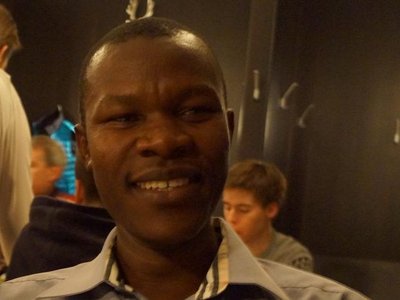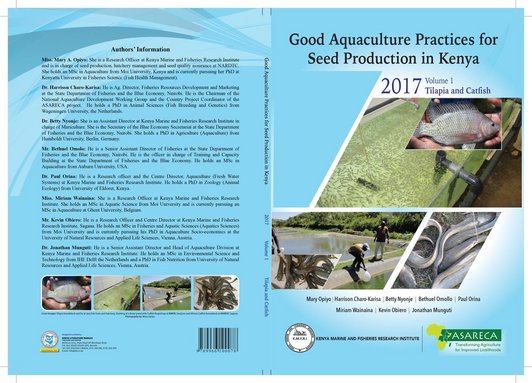

It can be used as a source of important information to various stakeholders in aquaculture including researchers, lecturers, students and aquaculture business enterprises.
It will also help government agencies to ensure high quality of standard operating procedures and products. Good husbandry is required to maintain the momentum of the renewed interest in aquaculture in Kenya and the region. The guidelines herein will form a good basis for farmers to easily acquire information on the best practices in the industry. These guidelines are consistent with relevant international codes of practice and guidelines and have been developed based on the best scientific evidence available to enable Tilapia and Catfish hatcheries apply techniques that are economically and environmentally sustainable.
The book is found in hardcopy and one can get it in Nairobi Offices or in Sagana.
Published by Kenya Marine and Fisheries Research Institute.
Kevin Obiero is in possession of a M.Sc. Degree in Fisheries and Aquatic Sciences from Moi University (currently University of Eldoret) specialising in Aquatic Sciences and Aquaculture. He is currently pursuing his PhD studies at BOKU University, focusing on the role of extension systems in innovating aquaculture in Kenya, within the framework of the STRECAFISH project. Prior to starting his PhD research, Kevin was working as a research scientist at Kenya Marine and Fisheries Research Institute (KMFRI), based at Sangoro Aquaculture Research Station, where he is in charge of research programmes. To upgrade his skills and professional experience, Kevin has attended several short courses and training programmes at international level including; Agriculture in Transition at Wageningen University, Fish Base and Fish Taxonomy Training at Royal Museum of Central Africa, Belgium, and Scientific Academic Exchange Programme at Nagasaki University, Japan.

